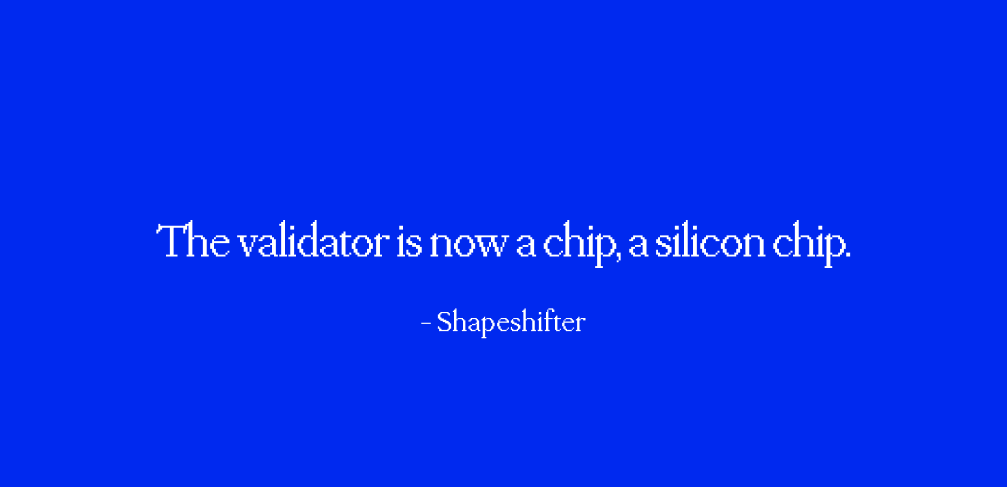Blockchains rely on consensus, but it comes at a price: scalability bottlenecks, inflationary tokens, and high latency.
In this thread, we break down:
🔹 What consensus mechanisms actually do
🔹 Why they struggle to scale
🔹 And how Shift is built with a radically new approach: hardware-secured validation.
Let’s dive in 👇

1/ In blockchain systems, consensus mechanisms are used to ensure that a decentralized group of nodes agree on the validity of transactions. This process is essential to prevent double-spending, and to maintain a consistent state across the network, all without a central authority.
2/ Here are some of the most common consensus mechanisms in production:
• Nakamoto Consensus (PoW): Probabilistic finality via energy-intensive hash puzzles (e.g., Bitcoin).
• Proof of Stake (PoS): Deterministic validator selection based on staked value (e.g., Ethereum).
• DPoS, pBFT, Tendermint: Byzantine fault-tolerant variants optimized for throughput and low latency.
3/ Consensus keeps blockchains secure, but it slows them down due to coordination overhead and state replication. The primary challenges of traditional consensus mechanisms are:
Latency: Global coordination across nodes introduces delays.
Limited Throughput: Every txn needs to be validated and agreed upon by a decentralized network.
Cost and Complexity: Networks introduce fees and token inflation.
4/ Shift introduces a different model: hardware-based validation using Physically Unclonable Functions (PUFs). PUFs are chips with unique, unclonable physical properties. Each transaction is signed at the hardware level, using a secure, device-specific identity that cannot be copied or forged. The hardware itself guarantees that the user can’t double spend.
5/ Because validation happens on-device, no network-wide coordination is needed. This results in:
✅Instant transaction finality
✅No validators or miners
✅No consensus overhead
✅Zero transaction fees
Theoretical scalability limited only by device availability
Shift replaces consensus with hardware attestation.
5
1.65K
The content on this page is provided by third parties. Unless otherwise stated, OKX is not the author of the cited article(s) and does not claim any copyright in the materials. The content is provided for informational purposes only and does not represent the views of OKX. It is not intended to be an endorsement of any kind and should not be considered investment advice or a solicitation to buy or sell digital assets. To the extent generative AI is utilized to provide summaries or other information, such AI generated content may be inaccurate or inconsistent. Please read the linked article for more details and information. OKX is not responsible for content hosted on third party sites. Digital asset holdings, including stablecoins and NFTs, involve a high degree of risk and can fluctuate greatly. You should carefully consider whether trading or holding digital assets is suitable for you in light of your financial condition.

